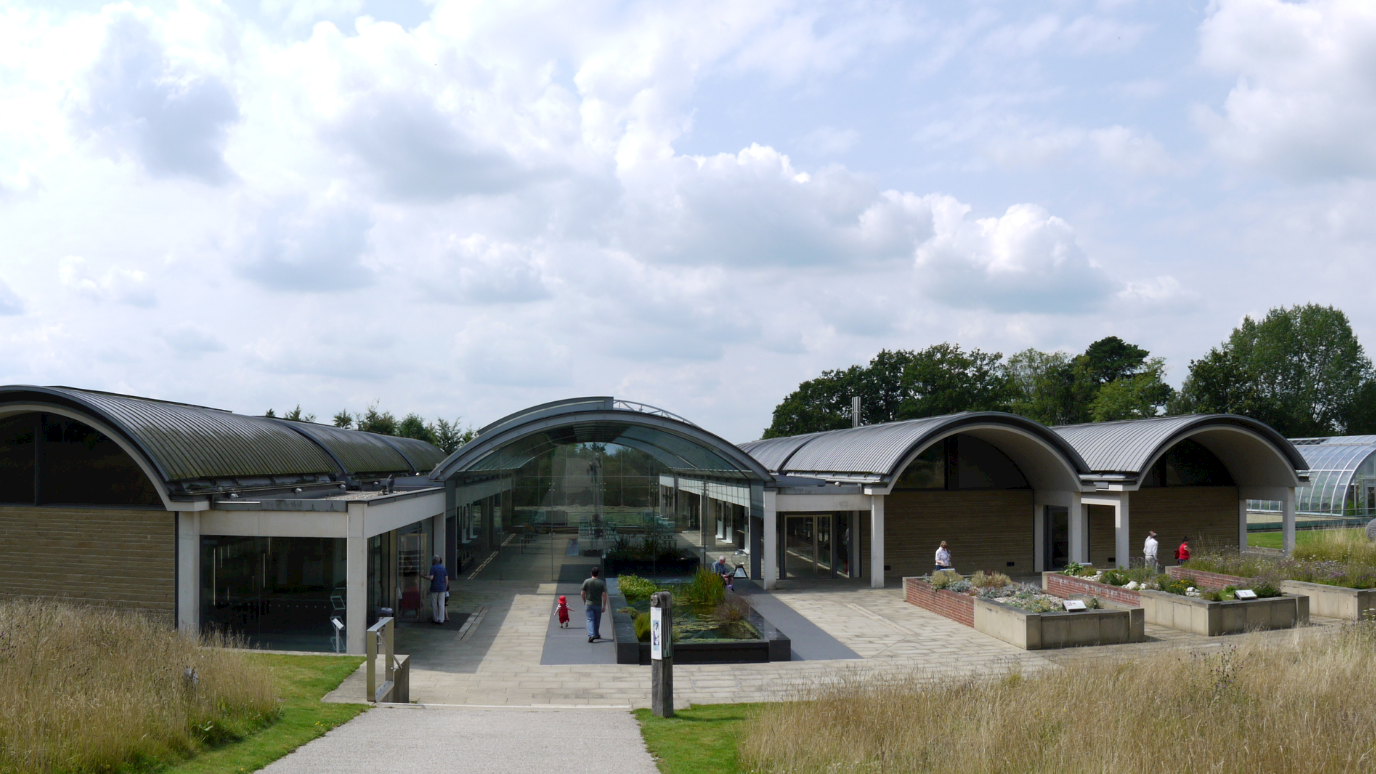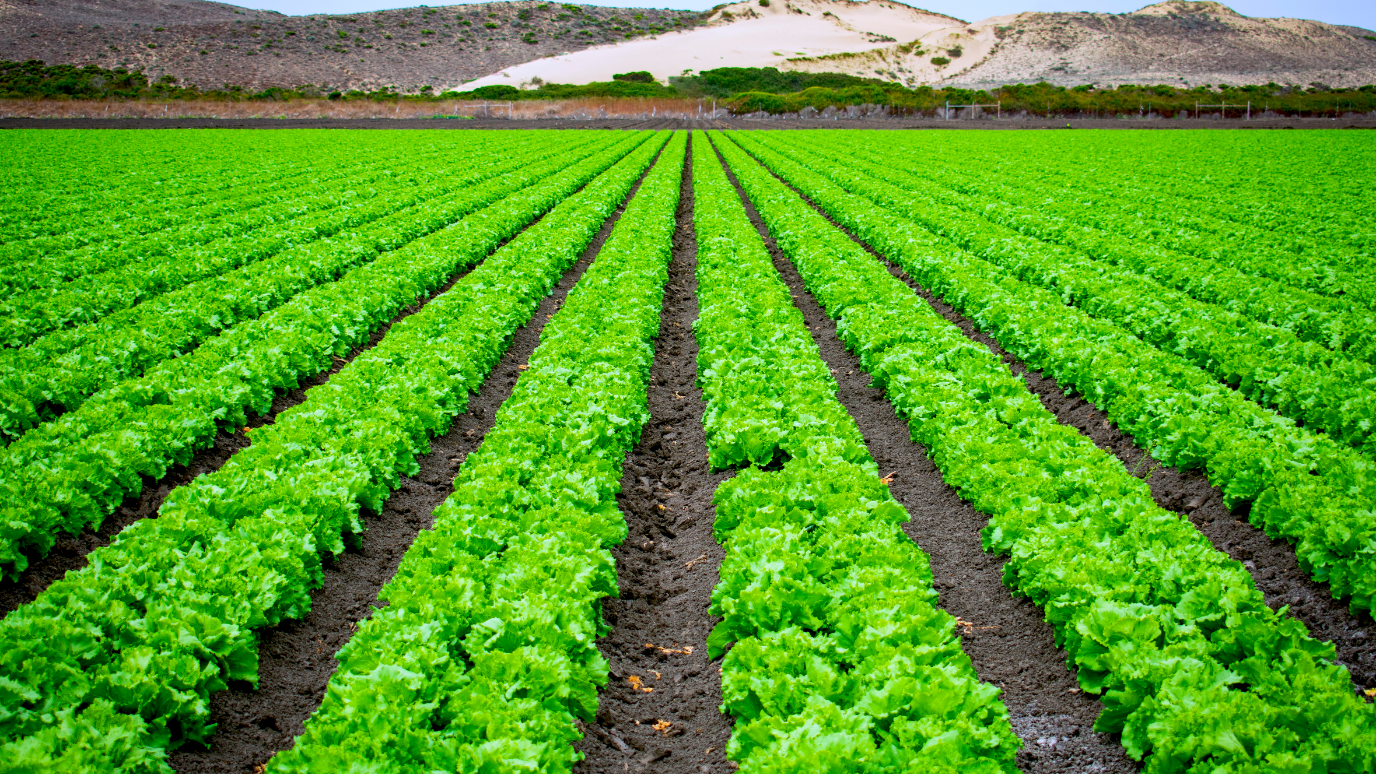Action on agriculture and food systems has been identified as key to shaping an effective global climate change response that can address the emerging risks from climate change on the health of communities. Doctoral student Joseph King writes about his research on developing seed technologies for the maintenance of our future ecosystems and long-term health.

The Millennium Seed Bank Project at Wakehurst Place, West Sussex, England.
Awareness of microbiomes has recently entered public understanding: communities of bacteria and fungi shape life around us and are central to the maintenance of a thriving ecosystem and health. Maintaining a healthy gut microbiome is influenced by diet and healthy lifestyle choices but is unique to individuals. Probiotics and prebiotics are readily available and are marketed to improve physical wellbeing through maintenance of bacterial communities within your gut. All living things and plants have unique microbiomes, and this is a rapidly growing field of research. Like your gut, a healthy plant microbiome reduces disease susceptibility and improves nutrient use efficiency (digestion) in the growing environment.
When you try to imagine a plant microbiome your mind might automatically jump to the roots and your instinct would be right because dirt is home to a plethora of microbes. This region is known as the rhizosphere where countless bacteria and fungi closely associate with the roots trading nutrients in beneficial relationships. There also exists bacteria and fungi on the shoots and leaves which are known as the phyllosphere and within tissues which are known as the endosphere.
One key player that had remained hidden to researchers until the development of DNA sequencing technologies was the discovery of a plant’s seed microbiome. There is now understanding that the seed is not only storing essential nutrients for germination after long periods of dormancy but also providing the initial bacteria and fungi which are core to the plant microbiome. With this knowledge, seed conservation initiatives such as Kew’s Millennium Seed Bank in Wakehurst are not only safely storing global species in the form of seeds but also the associated microbiome, although how the seed microbiome fluctuates in storage at -20°C remains poorly understood. We do know, however that the seed microbiome is inherited from a maternal plant proving its evolutionary importance and is highly dependent on the plant’s genome and that it differs between species. With this knowledge we now have the potential to fortify the seed microbiome with beneficial bacteria or fungi and understand traits that increase the risk to seed-borne diseases. With effective application, beneficial bacteria can improve plant health throughout the life of the plant increasing nutrient availability or by secreting growth-promoting hormones.
Deciphering functional importance will have implications for improving plant growth subject to extreme weather conditions due to climate change. Unlocking the potential to refine microbiomes with beneficial bacteria or fungi will provide an alternative approach to agriculture reducing the need for chemical additives such as pesticides or fertilisers adopting a more holistic understanding of plant health and performance. Yet not all bacteria or fungi are created equal with some being either beneficial or detrimental to the plant. The ratio (number) of each is partially dependent on environmental conditions.
Although research of seed microbiomes is in its early stages, appreciation, and acknowledgement of its importance bodes well for sustainable agricultural practices. Plant breeding will not only be based on traits, diseases resistance and yields but also aims for an optimal starting microbiome that is tailored for specific growing environments. Understanding how adaptive an already overcrowded and over-competitive seed microbiome is to a foreign beneficial microbe will lead to improved application methods and subsequent beneficial effects. Furthermore, developing methods to isolate bacteria from seed as a biological resource will unlock a new catalogue of beneficial microbes specific to seeds. Developing sustainable seed technologies (biopriming) which will have an impact on how we produce healthy food even in stressful environments such as those caused by climate change. How to develop our knowledge in the field will help us to mitigate the effects of climate change and improve food security in an uncertain future.
Joseph King is completing a Phd funded by Living Sustainably with Prof. Gerhard Leubner and Dr. Erica Rowan (Classics) at the The Seed Biology Place Royal Holloway, University of London.
























